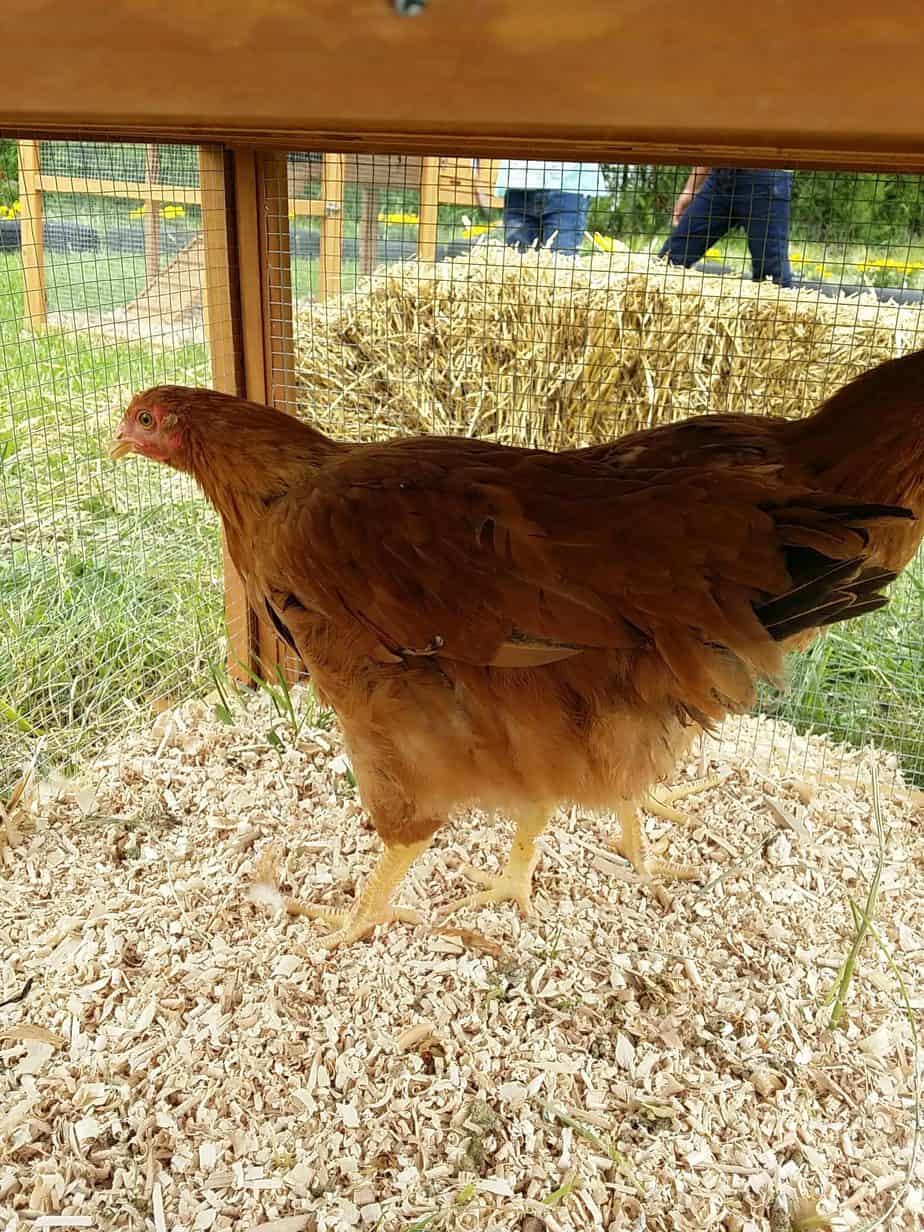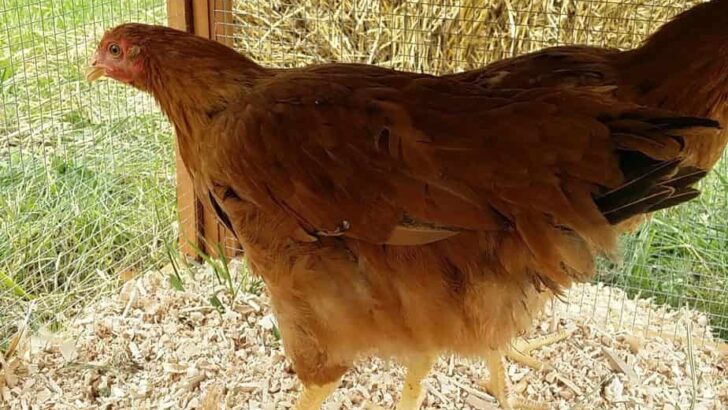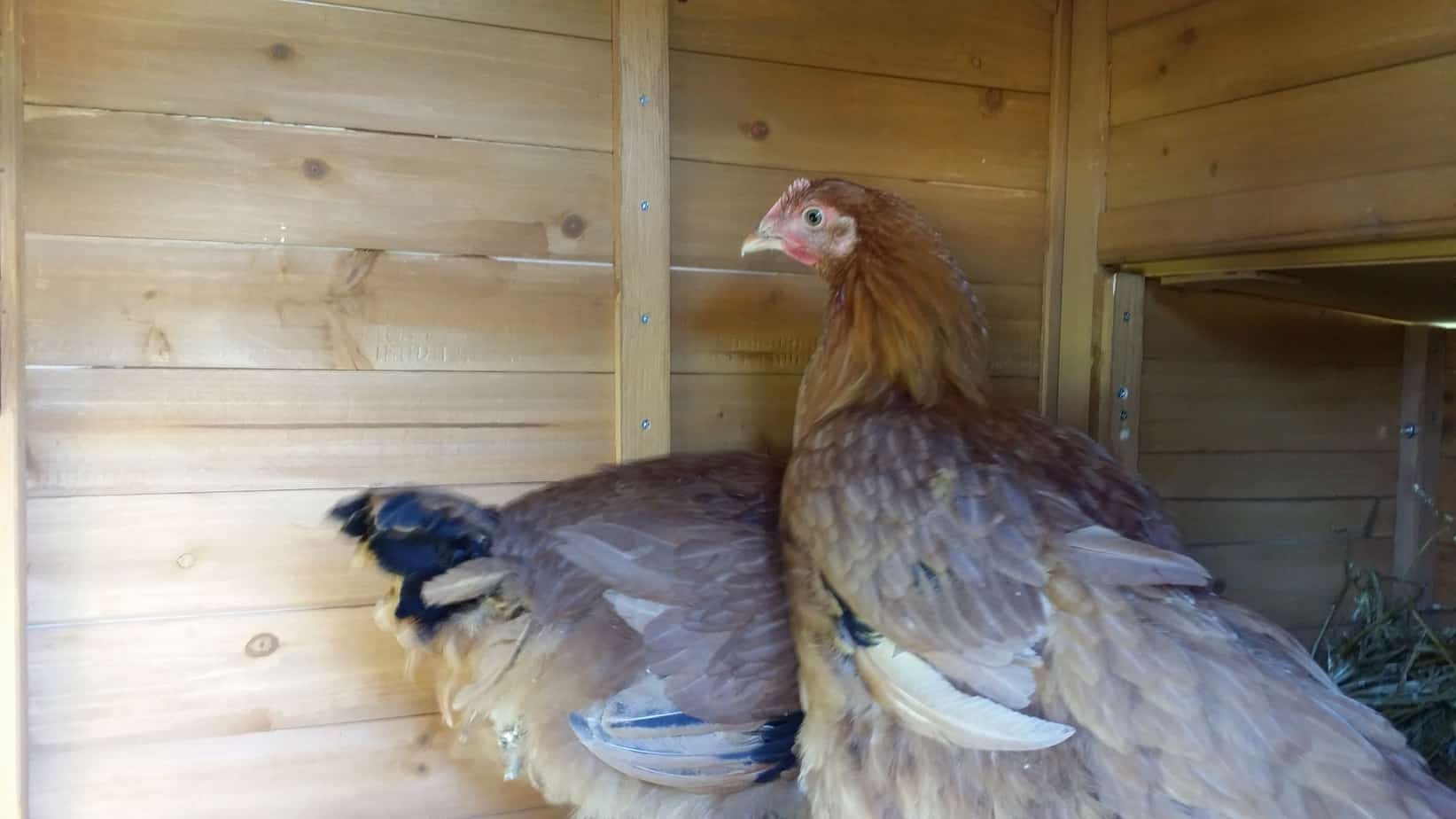One of these months (September) was National Chicken Month. We all missed it around here, but I still have a great post!
I bet you didn't know that. For some of you, I bet you didn't know that you care. Because you should.
I'm pretty sure that you have a TON of chicken recipes to look into, and that's good, because I'm not going to talk about cooking chickens, I'm going to talk about raising chickens, and best practices when you decided to wade into this way of life. As you may know, Harry Connick Jr and his production team gifted me with four chickens in May of this year, and then I added more. As of this moment I have 13 chickens, and I'm still learning how to care for them properly. Today, I'm sharing information that I've learned up to this point with you too!

10 tips for raising backyard chickens
1. Check your city's laws
Here in Chicago, I can have as many chickens as I want (within reason of course.) This is permitted as long as I'm not creating a hazardous environment with things like their poop, or their noise. Contrary to popular belief, hens do make noise when they are laying eggs, and when you have more than three or four, it becomes a bit raucous. Those ladies know how to encourage each other!
We can also have roosters as long as the noise of their crowing doesn't bother our other neighbors. Roosters actually bother me, and since you don't need one in order to have fresh eggs, I pass on owning one.
2. Research what type of flock will do well in your environment
Given that I live in Chicago, I need winter hardy chickens. Yes, my chickens will stay outside during the winter, and Chicago winters can be brutal. Currently I have Ameracaunas (also known as Easter Eggers,) Buff Orpintons, Red Stars, Blue Laced Wyandotte, Silver Laced Wyandotte, Gold Laced Wyandotte, Black Austrolorp, Brahma, ISA Brown, Barred Rock, and an Amberlink.
All of these chickens will do okay in the winter so long as they have a warm, dry coop, and plenty to eat to keep them warm. Which leads me to my next point.
3. Make sure to feed and water your chickens daily
Did you know that not giving your chickens water for a day can throw off their egg laying for several days? Sometimes the strike can even last several weeks! If you're like me, and enjoy your fresh eggs daily, please remember to give water and food daily. It's also necessary to supply oyster shells (to LAYING hens only) and grit. The oyster shells improves the thickness of the egg shell and improves the overall health of the chicken. Laying eggs is hard work, and they need all of the help they can get. Grit is also given because some food may be a bit harder to grind. Grit is an insoluble stone, and sits in the gut to help grind food for the chickens. Chicks don't need this off the cuff because most of their food will be soft enough to digest and pass. Remember, chickens who free range pick up stones and small rocks, but may need the extra help that store bought grit affords them. I get mine from Belmont Feed and Seed on the city's north side. This place also has everything that I would ever need to purchase for my chickens.
4. Chickens CAN be expensive
Keeping chickens isn't cheap. You have to pay for food, bedding, and other items that they may need. Oyster shells and grit are just a few of those items, along with something to feed them from, and something to keep their water in. You can always re-purpose items, but it has to be safe for the chickens. Research helps alleviate making any mistakes, but it always helps to make sure that you have a chicken expert to speak to. If you don't, chicken sites, like Backyard Chickens, are always the way to go as well.
5. Chickens stink
I'm not sure how I can make that sound nicer. They stink to high heaven, and if you don't stay on top of poop removal and recycling (we use ours in compost) you will regret it. Keeping bedding deep, even though they are going to scratch it all out and make holes in the ground to dust in, is a great way to go. This along with cleaning out the coop weekly will help keep scents down and flies at bay.
6. Coops can set you back quite a bit
That's it. There's no flowery statement to go with this. If you can, scrounge and build before obtaining your flock do that. Make friends with people who have pallets, they are like gold in these coop building streets.
7. You have to take care of your chickens in the winter
I know that I shouldn't have to tell you this, but chickens need care during the cold months too, even if they aren't laying eggs. So make sure this is something that you want to take on financially. Or, you could add lighting in the coop to make sure that they are producing eggs during the winter months as well. Some people let their flock rest during the winter, while others want those eggs year round. Feed changes too. Colder months are the perfect time to add corn to your feed as it is known to produce a bit more heat, which is why chicken enthusiasts suggest pulling it from your feed during the warmer months.
8. Chickens are hypnotic
It's like your own feathered sitcom when you have a flock. There's a hierarchy, and there's something about having all of your girls and guys (if you have roosters) know to come running when they hear or see you coming. Watching them scratch, and search for bugs, and give themselves dust baths can provide quite the satisfactory amount of entertainment.
9. Chicken eggs aren't the color of the chicken laying them
I feel the need to add this to the list, since I keep hearing this spouted as fact. Also, white eggs aren't bleached. They come from a breed of chickens called leghorns. Think Foghorn Leghorn from the Looney Tunes cartoons. Although he was a rooster, and can't lay eggs. Just stay with me here.
10. You do NOT need a rooster to have fresh eggs
Just like humans, hens are born with all of the eggs that they will ever have in life. When they are of laying age, eggs travel down their oviduct every 24-36 hours. They do not need a rooster in order to lay eggs. Let me repeat, you do NOT need a rooster to have fresh eggs from a hen. Now. If you want to breed chicks, then you would most definitely need a rooster, and I would explain, but do you really need me to?
Raising backyard chickens can be so rewarding, but I'd be lying if I didn't say that there are definitely some sacrifices that you have to make. Especially if you travel. It's always great to have a neighbor who isn't afraid of the chickens who can feed them for you in exchange for fresh eggs. Make those friends, they will save you quite a bit.
Do you have any other questions that I may not have answered here? Let me know, and I'll do my best to do a follow up on the blog!
This post was written as part of my ongoing sponsored partnership with the U.S. Farmers and Ranchers Alliance. All opinions expressed are my own.



angie
Tuesday 29th of November 2016
hi I have 22 hens 2 roosters. I live in Indiana and I enjoy my chickens. for the last month1 of my hens became nesty and my husband let her keep 3 eggs. since I work all time I really didn't know. now I have chics. which isn't a problem but now I need to know (since it is late nov) do I let mama take care of them and do I need to separate mama and the chics from the rest of the flock. thank you angie
Natasha Nicholes
Tuesday 29th of November 2016
Hi Angie,
You are perfectly fine leaving mom with the chicks as long as she is paying attention to them, and keeping them warm and protecting them from the other hens. Because she was already broody, she is in the perfect stage to make sure that they grow up big and strong. You can separate them inside the same coop if you want, which consists of something that is sturdy (won't turn over and trap either hens or the chicks) but private. The hens do need to get used to the chicks so that they can be taken into the fold, and they will peck at them to establish a natural pecking order.
However, if you notice that they are becoming a bit of a bully, remove the chicks and mama until the chicks are bigger and then reintroduce them to the other hens.